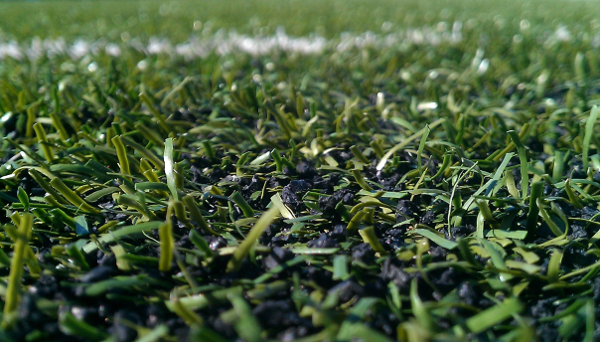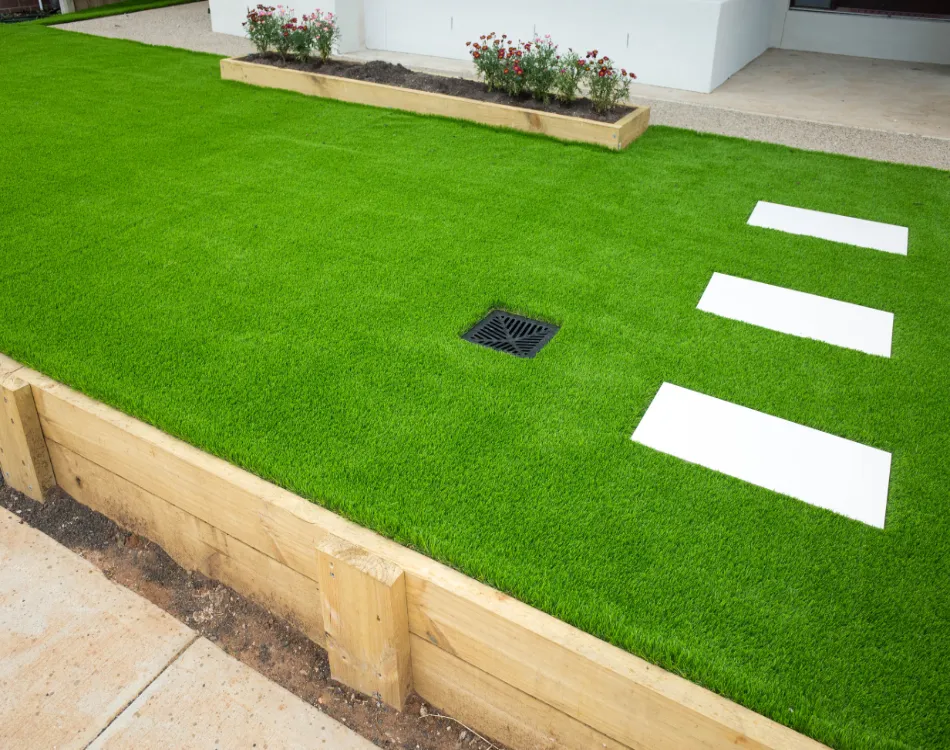Upgrade Your Yard with Professional Turf Installation Phoenix AZ Services
Upgrade Your Yard with Professional Turf Installation Phoenix AZ Services
Blog Article
Look Into the Environmental Perks of Opting for Artificial Lawn Solutions
The adoption of fabricated grass services offers a compelling possibility to deal with pressing environmental obstacles. By considerably minimizing water usage and lessening the application of hazardous chemicals, these choices not just promote lasting landscaping yet also secure regional environments. Additionally, the lower carbon footprint related to lowered maintenance tasks adds to a much more sustainable approach to land management. The effects of these benefits expand past simple preservation efforts, increasing questions concerning their long-term impact on environment preservation and general ecological equilibrium. Checking out these measurements reveals a complicated interaction worth thinking about.
Water Preservation Perks
One of the most considerable advantages of man-made turf is its capacity to preserve water. In comparison, artificial lawn does not require watering, substantially reducing the overall need for water sources.
By eliminating the demand for regular watering, artificial grass adds to lasting landscape techniques and helps minimize the ecological impact of too much water intake. Additionally, the preservation of water reaches the reduction of runoff, which can cause soil erosion and waterway contamination.
Furthermore, the installation of synthetic grass enables homeowners and municipalities to assign water resources much more successfully, concentrating on essential uses such as drinking water and agriculture. The shift towards artificial grass not just advertises accountable water usage but also lines up with wider ecological goals focused on protecting natural deposits.
As neighborhoods significantly focus on sustainability, the water preservation benefits of synthetic turf present an engaging instance for its adoption in domestic and industrial landscaping jobs.
Decreased Chemical Usage
The change to synthetic grass dramatically lowers the reliance on chemical therapies typically used in all-natural turf maintenance. Traditional lawn monitoring usually involves the application of plant foods, chemicals, and herbicides to advertise development and control insects. These chemicals can position threats to human wellness, neighborhood wildlife, and the setting, adding to soil and water contamination.
In comparison, man-made turf removes the requirement for these dangerous substances. By decreasing the launch of artificial substances right into the ecosystem, fabricated turf promotes healthier soil and water systems.
In addition, the lack of chemical runoff related to artificial grass installments aids shield neighborhood rivers from pollution, sustaining marine life and preserving biodiversity. Arizona turf. As communities increasingly focus on sustainable methods, choosing for synthetic grass presents a practical service that aligns with environmental preservation objectives. Via this change, residential property owners can take pleasure in rich eco-friendly spaces without endangering eco-friendly wellness, leading the way for a much more sustainable future
Reduced Carbon Footprint

Moreover, the installation of fabricated turf can lead to substantial water preservation. Natural yards need substantial quantities of water for watering, which not just contributes to the carbon footprint related to water extraction and treatment but additionally strains regional water sources. In contrast, artificial grass requires marginal upkeep, needing no watering, thereby dramatically reducing water use and its associated energy prices.
Additionally, the longevity of synthetic grass contributes to its decreased carbon effect. With a life-span of up to 15 years or more, the need for frequent substitutes is diminished, resulting in much less waste and reduced energy intake in production and throwing away traditional grass choices. In general, synthetic grass presents a sustainable option for eco conscious landscaping.
Habitat Conservation
Habitat preservation is an essential factor to consider in the dispute over landscaping options, particularly when contrasting synthetic grass to all-natural turf. All-natural lawn lawns often call for considerable upkeep, including the usage of plant foods, herbicides, and pesticides, which can detrimentally affect regional ecological communities. These chemicals can leach right into the soil and rivers, harming indigenous plants and animals and interrupting neighborhood environments.
In contrast, artificial grass offers a possibility to decrease the eco-friendly footprint of landscape design. By choosing artificial grass, home owners can reduce the interruption of natural environments connected with standard yard care methods. Synthetic grass removes the demand for damaging chemicals, consequently protecting Home Page close-by wildlife and keeping the integrity of surrounding ecosystems. The installation of man-made lawn can lead to the conversion of former lawn locations right into even more biodiverse landscapes, such as pollinator gardens or indigenous plant look at here now locations, which can sustain regional wildlife.
Inevitably, the change to synthetic grass not only conserves water and lowers upkeep initiatives but likewise promotes a much more harmonious relationship between human tasks and the all-natural atmosphere, advertising environment preservation in the process.
Long-Term Sustainability
Long-lasting sustainability is a crucial factor in evaluating the benefits of artificial grass over traditional lawn yards. One of one of the most substantial benefits of synthetic grass is its durability; it can last approximately 15-20 years with very little upkeep, whereas natural grass needs regular reseeding and substitute. This long life decreases the demand for constant sources, such as water, plant foods, and pesticides, which are crucial for keeping a healthy and balanced turf lawn.
In addition, man-made turf contributes to a reduction in carbon exhausts associated with lawn care devices. Typical lawns usually call for gas-powered lawn mowers, leaners, and blowers, every one of which add to air contamination. Turf installation phoenix az. In contrast, man-made turf eliminates the demand for such tools, promoting a cleaner environment
In addition, the manufacturing of synthetic grass increasingly makes use of recycled materials, improving its sustainability account. As suppliers embrace eco-friendly practices, the environmental footprint of fabricated turf remains to reduce.

Verdict
The fostering of synthetic grass remedies offers substantial ecological benefits, consisting of significant water preservation, reduced dependence on hazardous chemicals, and a reduced carbon impact. Additionally, synthetic grass aids in preserving natural habitats by minimizing land disturbance and promoting long-term sustainability through making use of sturdy products. Collectively, these factors highlight the capacity of synthetic lawn to add positively to environmental health and wellness and provide a viable option to typical landscape design methods in a progressively resource-conscious world.
In contrast, artificial lawn does not require watering, considerably minimizing the total need for water resources. By minimizing the launch of artificial compounds right into the environment, artificial lawn promotes much healthier soil and water systems.
In addition, the setup of fabricated grass can result in considerable water preservation. In contrast, synthetic turf requires minimal maintenance, calling for no watering, thus significantly reducing water usage and its linked power expenses.

Report this page